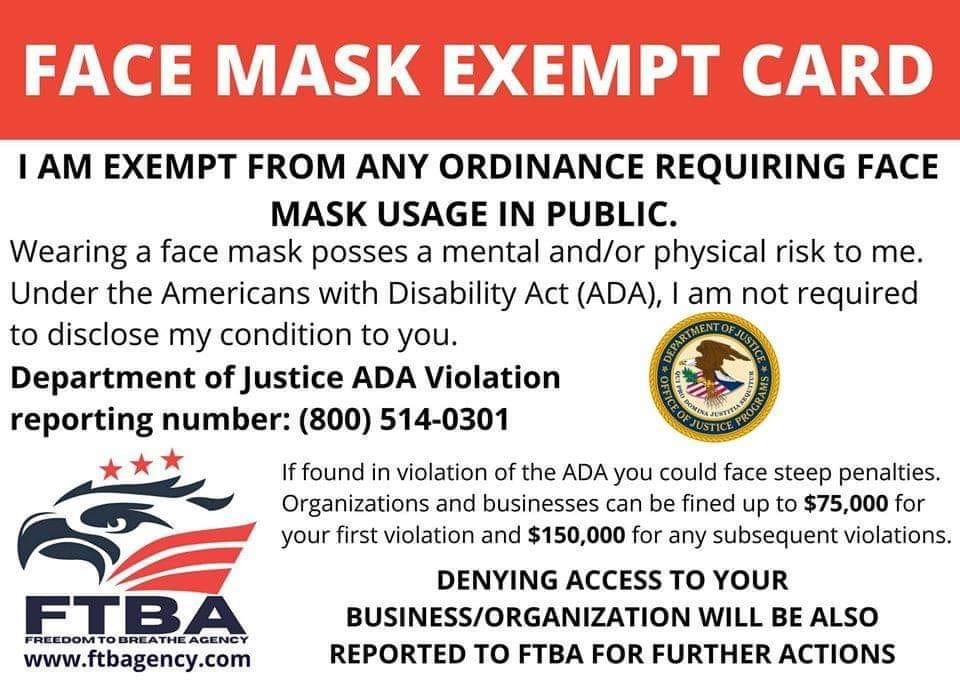Why Employee Requests for Mask Exemptions Continue to Rise?
Article written by Dr. Daliah.
Requests for exemptions from face mask use have skyrocketed over the last few weeks.
Issues such as breathing difficulties, anxiety, skin irritation and panic attacks are prompting many to ask for accommodations at work.
Nevada this week joined states such as California, Oregon, Washington, Maine, Rhode Island, Kentucky, New Jersey, New Mexico, and New York in mandating use of a mask when being in public.
But many employees find the employer mandates of mask wearing too restrictive.
Employers, however, run the risk of business sanctions or closures if they don’t comply with employee mask directives. Moreover, any failure to comply with medical-related requests could put them in violation of the ADA (Americans with Disabilities Act).
What should employers/business owners do if employees do not want to wear the mask?
Both employers and employees have options.
Most state mandates exclude mask use for those who suffer medical ailments that can be exacerbated by a facial covering.
An employee can provide medical documentation from their medical provider requesting the accomodation.
An employer can also allow flexibility in face mask coverings, hence allow employees to design their own, if the ones offered through the company will not work.
An employee also can also ask to not be scheduled for shifts until the mask mandates are over. This might fall under unpaid leave, but it is still an option for those who do not want to lose their job for failure to wear a mask.
Employers can offer frequent breaks for those who get “mask fatigue”.
Mask Fatigue: Do Workers Need “Mask Breaks?”
This week, however, the Department of Justice warned employers of fake exemption cards, threatening ADA violations and fines. They state, “The Department urges the public not to rely on the information contained in these postings and to visit ADA.gov for ADA information issued by the Department.”

Why are masks being mandated?
A mask that covers the nose and mouth provides a barrier to and from the outside environment, or from one’s mouth to others. The effectiveness of the barrier in preventing pathogen spread varies depending on the materials used and how often it is cleaned or replaced.

N95 respirators appear to be the most protective. They are designed to keep pathogens out during oxygen and carbon dioxide exchange. They are made from non-woven polypropylene fibers and they are >95% efficient at filtering 0.3-μm particles (smaller than the average 5μm particles given off during coughing and talking). Breathing can be easily managed while wearing a properly fitted N95 mask. However most state mandates allow flexibility in material choice for one’s mask.
Because studies have shown a properly fitted and worn mask to prevent the spread of some pathogens, it’s considered an extra tool in the fight against COVID as the country sees a spike in cases.


